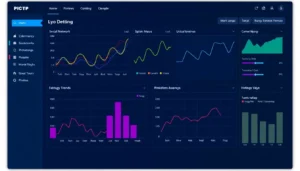Strategic Guide to Choosing Effective Project Topics for Academic Success

Understanding the Significance of Project Topics in Academic Research
Selecting the right project topics is a pivotal step in shaping the success and quality of your academic research. These topics serve as the foundation upon which your entire research work is built, influencing your methodology, data collection, analysis, and ultimately, your academic grade. Well-chosen project topics not only reflect your interests and expertise but also demonstrate your capacity to address relevant issues within your field, increasing your visibility and professional relevance. Universities and colleges emphasize the importance of choosing feasible, original, and timely topics as a means to foster meaningful research outcomes and contribute new knowledge to the scholarly community.
Step-by-Step Process to Identify and Develop Strong Project Topics
1. Brainstorming and Narrowing Down Your Research Interests
The initial phase in selecting compelling project topics involves introspection and brainstorming. Begin by listing your academic strengths, subjects of passion, or areas where you see pressing industry needs. For instance, if you are interested in digital marketing, you might explore topics such as social media strategies or online branding. Narrow your focus by asking critical questions such as: What problems do I want to solve? Which issues are currently trending in my field? Remember, the goal is to find an intersection between your interests and real-world problems, which enhances engagement and relevance for your research.
2. Conducting Preliminary Research to Validate Your Ideas
Once you have a list of potential topics, the next crucial step is to validate their feasibility. Use academic databases, journals, recent publications, and industry reports to gauge the extent of existing research and identify gaps your work can fill. For example, if you’re considering a topic like “Impact of E-commerce in Small Retail Businesses,” check recent studies to understand what has already been covered. This process helps prevent redundancy, ensures originality, and strengthens your research foundation.
3. Aligning Topics with Available Resources and Data
Practicality is key to successful research. Assess your access to data sources, laboratory equipment, field sites, or industry contacts relevant to your chosen topics. For instance, a study requiring primary data from small businesses needs access to those businesses or detailed survey data. Ensure your selected topics align with your available resources, time constraints, and academic requirements. This alignment minimizes delays and maximizes the quality of your outputs.
Best Practices for Crafting Unique and Relevant Project Topics
1. Analyzing Current Trends and Gaps in Your Field
Staying updated with industry reports, academic journals, annual conference proceedings, and online forums provides insight into trending issues and unmet needs. For example, emerging fields like blockchain technology or renewable energy offer fertile ground for innovative projects. Conducting a literature review helps identify gaps in current knowledge and develop topics addressing these gaps, making your research more impactful and relevant.
2. Incorporating Practical and Real-World Issues
Relevance enhances research applicability. For thorough engagement, craft topics addressing specific challenges faced by industries, communities, or policymakers. For instance, rather than a generic topic like “Financial Inclusion,” opt for “Assessing the Impact of Mobile Banking on Financial Inclusion in Rural Nigeria.” Such specificity demonstrates tangible societal contributions and aligns with stakeholders’ interests.
3. Ensuring Originality and Feasibility in Topic Selection
Originality is crucial for standing out. Avoid overused topics by incorporating new angles, frameworks, or datasets. Before finalizing, verify that your proposed topic is feasible within your academic setting, considering scope, duration, and available expertise. Engaging your supervisor or industry mentors during this phase ensures your ideas are pragmatic, aligned with current standards, and capable of generating valuable insights.
Utilizing Tools and Resources to Find Top Project Topics
1. Leveraging Online Databases and Repositories
Platforms like ResearchWap, Google Scholar, JSTOR, and institutional repositories offer vast collections of project topics, research papers, and case studies. These sources help identify trending issues and provide inspiration for your research. For example, browsing recent projects in your department can reveal popular themes, enabling you to select a novel angle or improve upon existing work.
2. Consulting with Academic Advisors and Industry Experts
Experienced mentors possess invaluable insights specific to your discipline and can suggest innovative and feasible topics. Schedule meetings with your supervisors, industry professionals, or alumni who have undertaken similar projects. Their feedback ensures your chosen topics are relevant and aligned with current industry challenges.
3. Utilizing Keyword Research for Trending Ideas
Tools like Google Trends, keyword planners, and social media analytics reveal what topics are garnering interest. Incorporating trending keywords into your research questions improves visibility and relevance. For instance, searching for “AI in Education” or “Renewable Energy Policy Nigeria” can point you toward current, high-impact themes.
Implementing and Refining Your Chosen Project Topics
1. Developing a Clear Research Question and Objectives
Transform your topic into a precise research question. For example, if your broad theme is “Digital Payment Systems,” refine it to “What Are the Key Factors Influencing the Adoption of Mobile Money in West Africa?” Clear objectives should outline the process of answering this question, setting the scope, variables, and expected outcomes.
2. Planning Methodology and Scope for Your Project
Define the research approach—qualitative, quantitative, or mixed methods. Specify data collection methods, sample size, and analysis techniques. For example, surveys, interviews, experiments, or secondary data analysis—all should be aligned with your objectives and available resources.
3. Adapting Topics Based on Feedback and Feasibility
Be prepared to modify your topic based on supervisor feedback or resource availability. Flexibility ensures your project remains manageable without compromising quality. Additionally, pilot studies or preliminary research can validate your approach and refine your focus.







